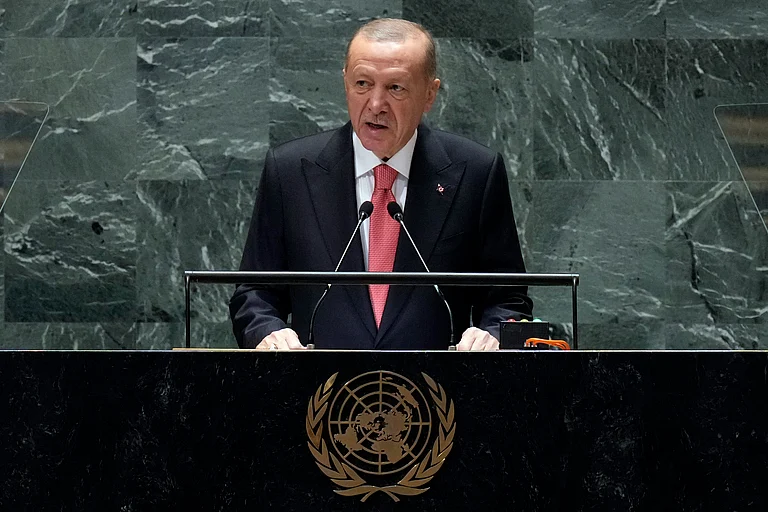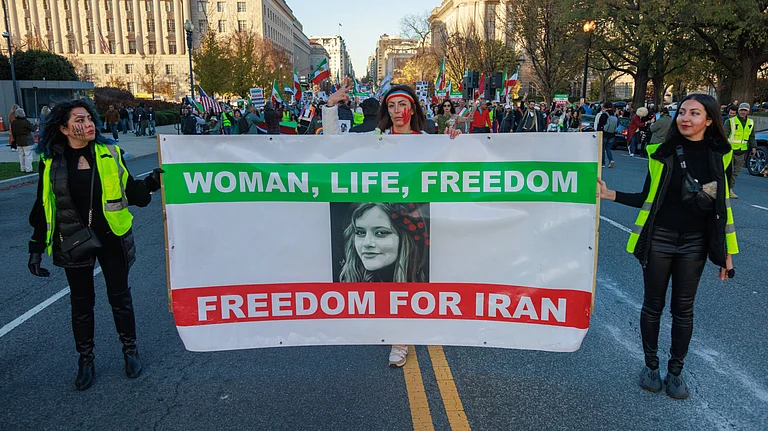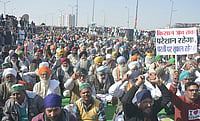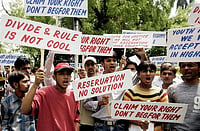Iran could develop a nuclear weapon within months if it wants to, according to Gen. Mark Milley, the top US general.
In his testimony to US Congress on Thursday, Milley also said that the US military has preparead plans to present to the President in case Iran develops a nuclear weapon. These plans present multiple plans of action to the administration.
The Iranian nuclear issue has been a key concern of the United States and its allies for a long time now. The United States and allies fear that nuclear-armed Iran would ignite an arms race in the Middle East and would destabilise the region. To its partners in the region, such as Israel, the United States has assured that it would not Iran to develop a nuclear bomb.
However, words used in Milley's testimony have led to debate whether the President Joe Biden's administration still sticks to that policy of not allowing Iran to have a nuclear weapon.
Here we explain what Milley said, what's the debate his comments ignited, and what are the concerns over Iran acquiring a nuclear weapon.
What did General Milley say?
General Mark Milley told the US Congress that Iran could develop a nuclear weapon in months if it wants to.
Fox News noted that Milley's statement is important as he presented as a much shorter timeline than earlier reported.
Milley also said that Iran is taking actions to improve its capabilities to produce a nuclear weapon along side its missile program. Notably, the for practical purposes, Iran or any country would need a delivery platform —which delivers the nuclear bomb to its destination— which is commonly a missile. The nuclear warhead is 'mated' with the missile and then it's launched.
"From the time of a national decision, Iran could produce enough fissile material for a nuclear weapon in approximately 10-15 days and it would only take several months to produce an actual nuclear weapon. The United States remains committed, as a matter of policy, that Iran will not have a fielded nuclear weapon. The United States military has developed multiple options for our national leadership to consider, if or when Iran decides to develop a nuclear weapon," said Milley, the Chairman of the Joint Chiefs of Staff.
Milley's statement is in line with a think tank report published in December 2022. The Institute for Science and International Security (ISIS) said in a report that it would take at least six months for Iran to develop a "crude" nuclear bomb, but it would likely to take longer for a better bomb.
"The nuclear explosive device itself would probably work, but if Iran wanted something better and more reliable, more work would be required, leading to delays in the actualization of a weapon or an underground test...As of November 2022, Iran is assessed by the Institute as being able to build a crude nuclear explosive in six months. At that point, it could conduct an underground nuclear test or let the world know about the device by other means," says the ISIS report.
What's the debate over General Milley's comment?
Besides the quicker timeline for the Iranian nuclear program, the part that caught the attention of experts was Milley's mention of a "fielded" nuclear weapon.
Milley said "as a matter of policy, that Iran will not have a fielded nuclear weapon". Experts pointed that Milley did not use the word "develop" but "fielded" which has a very different meaning. The word "fielded" means "deployment". Experts question if the Biden administration is okay with the development of the bomb but not with its deployment. Experts say the White House should clarify this as, if this is the case, it would be a major policy shift.
Further confusion came from the part when Milley said the US military has plans in case Iran develops nuclear weapons. Experts have questioned the logic of military action AFTER the development of nuclear weapons.
"This statement, as well as a similar comment by Milley last September, suggests the Biden administration is prepared to tolerate nuclear weapons in Iran’s hands, provided the weapon is not 'fielded' — that is — deployed...Yet his reference to 'a fielded nuclear weapon' introduced uncertainty about whether America would use force to stop Iran from breaking out of its nonproliferation commitments and producing one or more nuclear weapons," said Andrea Stricker,
Non-proliferation and Biodefense Program Deputy Director and Research Fellow at the think tank Foundation for the Defense of Democracies (FDD).
She further noted, "A shift in U.S. strategy from one of nuclear weapons denial to one of preventing their deployment — but not their production — would reflect a major policy departure...Tehran is too close to the nuclear threshold for mixed American messages.
"As of February, it had enough enriched uranium to produce weapons-grade uranium (WGU) for an estimated five nuclear weapons within three months and could make enough WGU for an additional two weapons soon after. Moreover, such a U.S. policy shift would be dangerous because the regime in Tehran may see it as a green light to move toward nuclear weapons production. If U.S. policy remains unchanged, then the White House should explicitly correct Milley’s comments. The administration should make clear that the United States is prepared to use force should Tehran attempt to produce atomic bombs."
Michael Rubin, Senior Fellow at the American Enterprise Institute (AEI), called Milley's statement "nonsense".
"Milley’s 'fielded' condition is nonsense. The time to stop Iran’s nuclear program is before it develops a nuclear weapon. Is Milley saying that the United States would bomb or go to war against Iran only once it becomes a nuclear power? Is the Biden administration willing to risk nuclear war? While I personally oppose bombing Iran, if military force is on the table, would it not make more strategic sense to strike Iran before it gained nuclear deterrence?" said Rubin in an article.
What are concerns over Iranian nuclear program?
The United States and allies are concerned that the Iranian nuclear program would destabilise the Middle East and ignite a nuclear weapons race.
There are also concerns over the increased Iranian support to terrorists with the might of nuclear weapons behind it. The United States maintains that Iran is a leading state-sponsor of terrorism. Independent reporting also maintains that Iran is the patron of some of the most active terrorist organisations in the region, ranging from the Palestinian terrorist organisation Hamas to Hezbollah.
Iran's nuclear bomb would also pose risks beyond the immediate neighbourhood, said Michael Eisenstadt of the The Washington Institute for Near East Policy in a Congressional hearing in 2004.
He said, "Iran's acquisition of nuclear weapons might further embolden its hard-line conservative leadership to bully its neighbors, stiff-arm Europe, and sponsor terrorism against Israel, and American interests in the Middle East or elsewhere."
Michael further warned of destability and arms race in the region.
"An Iranian bomb is also likely to spur additional proliferation in the Middle East. Saudi Arabia is likely to try to purchase a nuclear weapon, perhaps from North Korea or Pakistan, while some of the smaller Gulf states might leverage their petrochemical industries to produce modest chemical warfare (CW) stockpiles for deterrence," said Michael, currently Director of Military & Security Studies Program at The Washington Institute.
Michael also said that Iran could use the nuclear weapon as a means of last resort in case of domestic uprising. The comment acquires some degree of relevance as the hardline Islamist regime suffers from popular uprising currently in the wake of Mahsa Amini's death. Though the Iranian state is not yet facing an existential crisis, in case it does, then the nuclear weapon might be deployed as per Michael's warning in 2004.
He said, "Instability and unrest in a nuclear Iran could have dire consequences for the U.S. and the region. Should anti-regime violence escalate to the point that it were to threaten the survival of the Islamic Republic (unlikely in the near term, but a possibility in the future, should popular demands for political change continue to be ignored by conservative hardliners), diehard supporters of the old order might, in a parting shot, lash out at perceived external enemies of the doomed regime with all means at their disposal (including nuclear weapons)."
It's because of these reasons that the United States and allies are committed to preventing Iran from acquiring a nuclear bomb. However, Milley's comments cast a shadow over the nature of US commitment. Therefore, experts say the Biden administration should clarify the policy.


























